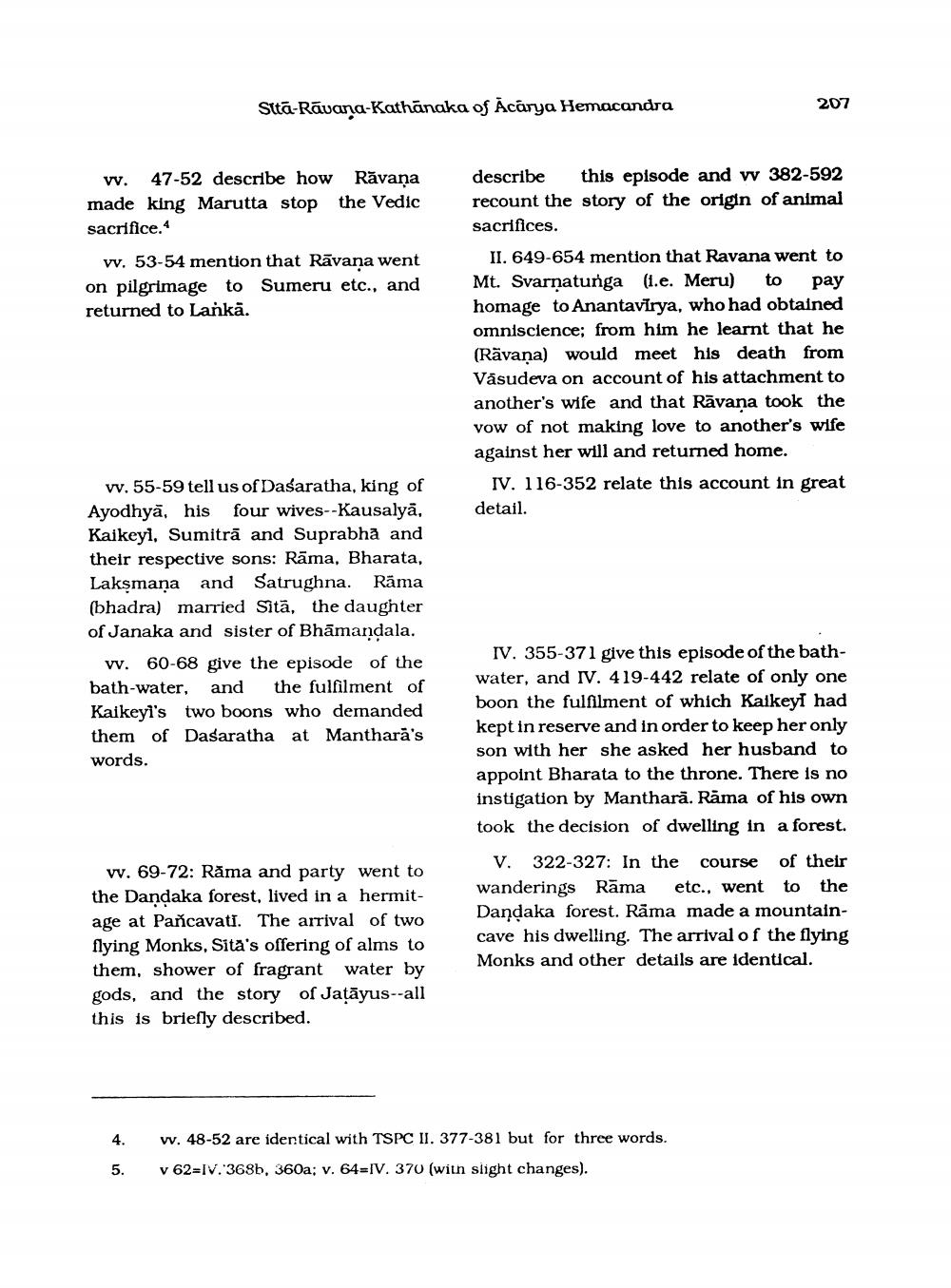________________
Sita-Rāvana-Kathanaka of Acārya Hemacandra
207
w. 47-52 describe how Răvaņa made king Marutta stop the Vedic sacrifice.
vv. 53-54 mention that Rāvana went on pilgrimage to Sumeru etc., and returned to Lankā.
describe this episode and w 382-592 recount the story of the origin of animal sacrifices.
II. 649-654 mention that Ravana went to Mt. Svarnatunga (1.e. Meru) to pay homage to Anantavīrya, who had obtained omniscience; from him he learnt that he (Rävana) would meet his death from Vasudeva on account of his attachment to another's wife and that Rāvana took the vow of not making love to another's wife against her will and returned home.
IV. 116-352 relate this account in great detail.
w. 55-59 tell us of Dasaratha, king of Ayodhyā, his four wives--Kausalya, Kaikeyi. Sumitrā and Suprabha and their respective sons: Rāma, Bharata, Laksmana and Satrughna. Rāma (bhadra) married Sitā, the daughter of Janaka and sister of Bhāmandala.
w. 60-68 give the episode of the bath-water, and the fulfilment of Kaikeyi's two boons who demanded them of Dasaratha at Manthara's words.
IV. 355-371 give this episode of the bathwater, and IV. 419-442 relate of only one boon the fulfillment of which Kaikeys had kept in reserve and in order to keep her only son with her she asked her husband to appoint Bharata to the throne. There is no instigation by Manthară. Rāma of his own took the decision of dwelling in a forest.
V. 322-327: In the course of their wanderings Rāma etc., went to the Dandaka forest. Rāma made a mountaincave his dwelling. The arrival of the flying Monks and other details are identical.
v. 69-72: Rāma and party went to the Dandaka forest, lived in a hermitage at Pancavati. The arrival of two flying Monks, Sita's offering of alms to them, shower of fragrant water by gods, and the story of Jatāyus--all this is briefly described.
4. 5.
w. 48-52 are identical with TSPC II. 377-381 but for three words. v 62=IV. 368b, 360a; v. 64=1V. 370 (with slight changes).




